It is the only source that can provide a chance for economic breakthrough
Published:
21 March 2005 y., Monday
Money from Russia’s Stabilisation Fund is expected to be invested abroad in dollar-nominated securities, with minimum investment risks and minimum profitability at 2-4%. These funds have until now been kept in Central Bank accounts. This means that a great deal of money will soon appear on the financial markets. On February 1, 2005, the Fund totaled 647.2 billion roubles ($23.1 billion), which mostly came from taxes on oil sales with prices exceeding $20 per barrel and export duties from oil companies.
The crucial question is how this money should be used. Money can only be taken out of the Fund when it has more than 500 billion roubles. Therefore, more than a fifth of its resources can already be used. This is a key issue for Russia’s economy, as the positive overseas market situation in recent years has been almost exclusively responsible for its growth.
However, experts are not tired of repeating that the potential of the resource-oriented Russian economy has been virtually exhausted. The mechanism whereby "we produce oil, sell it and enjoy the benefits" is becoming increasingly less effective. The country is now at a stage when it must introduce an industrial policy. However, any policy only makes sense when there is money to implement it.
Russia’s stock market and banking system do not provide the necessary financing for the real sector of the economy. Direct foreign investment in Russia remains at a very low level, while foreign investment in general is concentrated on either the import of equipment or foreign borrowings. The country obviously needs sources for further growth. The Stabilisation Fund is virtually the only potential source today and a genuine war is being waged for its funds.
Šaltinis:
financialexpress.com
Copying, publishing, announcing any information from the News.lt portal without written permission of News.lt editorial office is prohibited.
The most popular articles
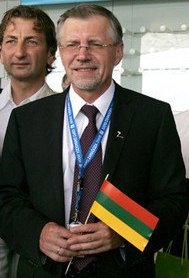 In Brussels, Prime Minister Gediminas Kirkilas participated in the meeting of Nordic and Baltic (NB6) Prime Ministers which focused on the pressing topics on the agenda of the European Council: global finance crisis, energy, climate change, EU-Russia relations, and financial situation in Iceland.
more »
In Brussels, Prime Minister Gediminas Kirkilas participated in the meeting of Nordic and Baltic (NB6) Prime Ministers which focused on the pressing topics on the agenda of the European Council: global finance crisis, energy, climate change, EU-Russia relations, and financial situation in Iceland.
more »
 Prime Minister Gediminas Kirkilas attended the working dinner with President of the European Commission José Manuel Barroso, Danish, Estonian, Finnish, Latvian, Polish Prime Ministers – Anders Fogh Rasmussen, Andrus Ansip, Matti Vanhanen, Ivars Godmanis, Donald Tusk – and Swedish Minister of Foreign Affairs Carl Bildt.
more »
Prime Minister Gediminas Kirkilas attended the working dinner with President of the European Commission José Manuel Barroso, Danish, Estonian, Finnish, Latvian, Polish Prime Ministers – Anders Fogh Rasmussen, Andrus Ansip, Matti Vanhanen, Ivars Godmanis, Donald Tusk – and Swedish Minister of Foreign Affairs Carl Bildt.
more »
 The European Commission has put forward a revision of EU rules on deposit guarantee schemes that puts into action the commitments made by EU Finance Ministers on 7 October.
more »
The European Commission has put forward a revision of EU rules on deposit guarantee schemes that puts into action the commitments made by EU Finance Ministers on 7 October.
more »
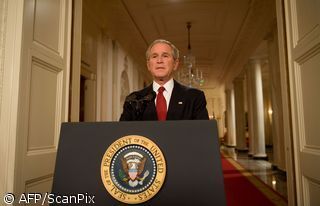 The United States began releasing long-awaited details of its $700 billion rescue plan.
more »
The United States began releasing long-awaited details of its $700 billion rescue plan.
more »
 Australia's Prime Minister announces plans for the government to guarantee bank deposits for the next three years.
more »
Australia's Prime Minister announces plans for the government to guarantee bank deposits for the next three years.
more »
 Ethical bank, Triodos, says it is offering customers an alternative way to invest their funds.
more »
Ethical bank, Triodos, says it is offering customers an alternative way to invest their funds.
more »
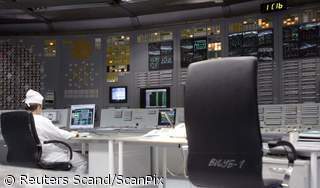 Energy security was the dominant theme during the meeting between Lithuanian Prime Minister Gediminas Kirkilas and Latvian Prime Minister Ivars Godmanis.
more »
Energy security was the dominant theme during the meeting between Lithuanian Prime Minister Gediminas Kirkilas and Latvian Prime Minister Ivars Godmanis.
more »
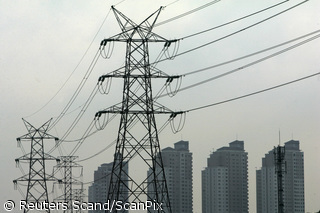 The draft law would require utilities to separate – or unbundle – the distribution of electricity and gas from production.
more »
The draft law would require utilities to separate – or unbundle – the distribution of electricity and gas from production.
more »
 A holistic approach to eradicating poverty, which seeks to ensure adequate incomes, quality jobs and better access to social services, is advocated by the EP in an own-initiative report.
more »
A holistic approach to eradicating poverty, which seeks to ensure adequate incomes, quality jobs and better access to social services, is advocated by the EP in an own-initiative report.
more »
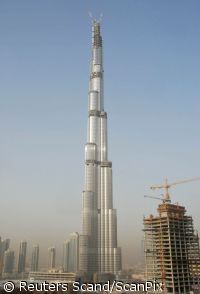 Dubai showcases multi-billion dollar development projects at the annual Cityscape exhibition.
more »
Dubai showcases multi-billion dollar development projects at the annual Cityscape exhibition.
more »